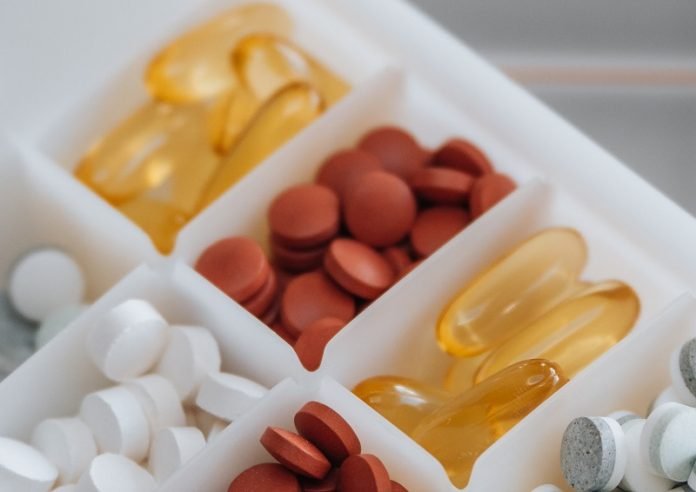
The COVID-19 pandemic has affected millions of people around the world, causing severe symptoms, hospitalizations, and deaths.
Clinical data has shown that patients with low vitamin D levels have a greater chance of contracting the virus and experiencing severe symptoms.
Vitamin D is an essential nutrient that plays a crucial role in maintaining healthy bones and teeth, supporting the immune system, and regulating calcium levels in the body.
Now, a new study led by scientists from Lankenau Institute for Medical Research (LIMR), part of Main Line Health, suggests that higher vitamin D intake can help fight off COVID-19.
The study showed that the vitamin strengthens the lung lining, preventing COVID-19 as well as other viruses from penetrating the body’s airways to cause infection.
It may also reduce fluid leakage into the airways, which causes pneumonia.
The study examined cell cultures from human lung linings and found that vitamin D increased barrier function by 40% and 25%, respectively.
The study builds on a body of research by the same team indicating vitamin A, zinc, and other micronutrients play a similar role to vitamin D.
This research group recently published a review article on the general topic of fluid leak in various diseases and combating it clinically with elevated levels of micronutrients.
Previous research has indicated that patients with vitamin D deficiency were five times more likely to become infected by COVID-19.
However, data supporting supplemental doses for those with vitamin D levels in the normal range are less clear, according to the authors.
The team says the benefits, however, are so clear and the risks so minimal that we believe physicians should be recommending supplemental vitamin D right away.
In addition to strengthening the body’s immune response, vitamin D has also been found to blunt cytokine storms, where the body’s immune response kicks into overdrive and can result in severe disease and death in COVID-19.
Vitamin D therapy may allow time for a patient’s own immune defenses to kick in before it’s too late.
In conclusion, maintaining adequate levels of vitamin D in the body could be helpful in fighting off COVID-19 and other respiratory infections.
It is important to talk to a healthcare professional before taking any supplements, as excessive amounts of vitamin D can be harmful.
The study’s findings could provide new insights into the development of effective treatments for COVID-19 and other respiratory infections, and further research is needed to determine the exact role of vitamin D in combating these diseases.
How to prevent COVID-19
Preventing the spread of COVID-19 requires a combination of individual and collective efforts. Here are some measures that can be taken to prevent the transmission of the virus:
Get vaccinated: COVID-19 vaccines have been proven to be effective in preventing infection and reducing the severity of the disease. It is important to get vaccinated as soon as possible and to follow local guidelines for booster shots if recommended.
Wear a mask: Masks can help prevent the spread of COVID-19 by reducing the number of virus particles that are released into the air.
It is recommended to wear a mask in public settings, especially in indoor spaces where social distancing is not possible.
Practice social distancing: Maintain a safe distance from others, especially those who are sick or have been exposed to the virus. Avoid crowded places and gatherings where the virus can spread easily.
Wash your hands frequently: Regularly wash your hands with soap and water for at least 20 seconds, especially after being in public places or touching surfaces that may be contaminated.
Stay home if you’re sick: If you have symptoms of COVID-19 or have been in close contact with someone who has tested positive, stay home and follow local guidelines for testing and quarantine.
Clean and disinfect surfaces: Clean and disinfect frequently touched surfaces, such as doorknobs, countertops, and phones, regularly to prevent the spread of the virus.
Improve ventilation: Open windows or use air purifiers to improve indoor ventilation and reduce the concentration of virus particles in the air.
By following these measures, individuals can help prevent the spread of COVID-19 and protect themselves and those around them.
If you care about COVID, please read studies that vaccines may increase heart disease risk, and this face mask can capture and deactivate the COVID-19 virus.
For more information about health, please see recent studies about the evidence on rare blood clots after COVID-19 vaccination, and results showing new drug combo could improve survival in lung cancer.
The study was conducted by Elizabeth Rybakovsky et al and published in Physiological Reports.
Copyright © 2023 Knowridge Science Report. All rights reserved.



